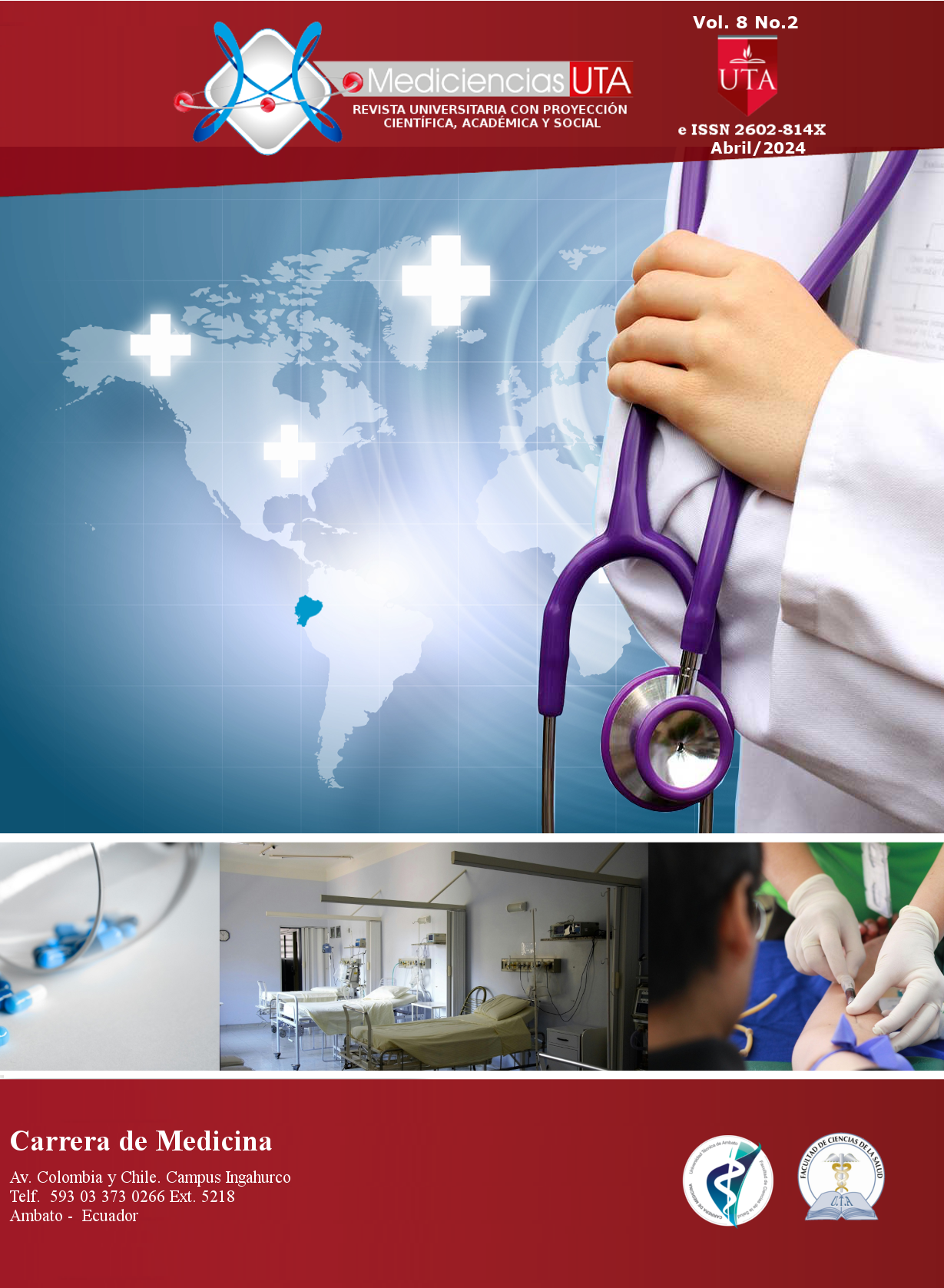Fallo hepático aguda en edad pediátrica, reporte de un caso
Contenido principal del artículo
Resumen
Presentamos el caso clínico de un paciente pediátrico de 7 años de edad que acude al servicio de Emergencia con un cuadro de 15 días de evolución de ictericia acompañado de vómito, dolor en hipocondrio derecho, coluria, acolia, trae consigo resultados de exámenes de laboratorio realizados anteriormente donde reporta neutrofilia sin leucocitosis, función hepática alterada bilirrubina total 31, bilirrubina directa de 17.6, TGO 620, TGP 17, niega ingesta de fármacos o productos herbolarios, no viajes reciente, a la exploración física una hepatomegalia considerable enfrentándonos a un diagnóstico presuntivo a su ingreso de hiperbilirrubinemia por lo que se complementa exámenes como tiempos de coagulación prolongados, fosfatasa alcalina, gama GT y glucosa elevados se añade serología VDRL, VIH, TORCH, HEPATITIS B siendo negativo se complementa con estudio ecográfico de abdomen donde lo positivo hepato-esplenomegalia, colecistitis aguda reactiva más cambios sugerentes de inflamación de la glándula pancreática. Dando un giro a nuestro diagnóstico y cambiándolo a fallo hepático grave por lo que se dan medidas terapéuticas de soporte e iniciar transferencia a tercer nivel de salud para manejo integral. La insuficiencia hepática aguda pediátrica se caracteriza por la presencia de daño hepático, coagulopatía, ictericia y encefalopatía, en niños es poco común, pero con desenlace fatal hasta en un 70%. El diagnóstico se basa en exámenes de función hepática, además de biopsia percutánea para determinar la etiología. El tratamiento requiere un equipo multidisciplinario que incluya al hepatólogo, al especialista en cuidados intensivos, y al cirujano pediátrico
Descargas
Detalles del artículo

Esta obra está bajo una licencia internacional Creative Commons Atribución-NoComercial-CompartirIgual 4.0.



